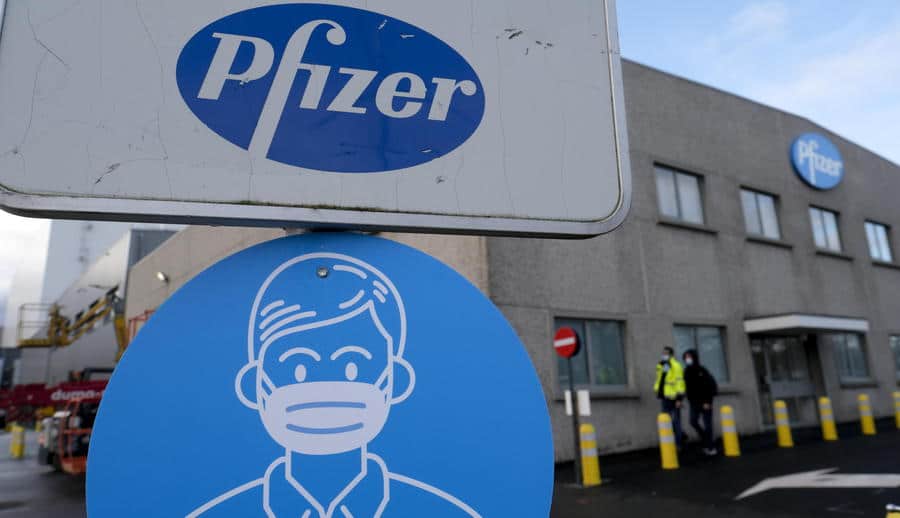A lawsuit by the Italian government against Pfizer would be a very complex path: the proceeding must be hinged in Brussels and a possible sentence recognized and enforced in the United States. And Professor Santa Maria reveals a detail on the Pfizer stock on the stock market that should have heralded some problems in distribution

Professor, the Italian government through the State Attorney's Office has threatened to sue Pfizer, which is late in delivering vaccines and has reduced the number of vials supplied in recent weeks. Is this a sensible move?
So let's go in order: what does the contract with Pfizer contain?
It was stipulated by the European Commission on behalf of the Member States and provides for a distribution of doses in proportion to the population of each State. It should be no different from those signed with other pharmaceutical companies that have developed vaccines against Covid-19. Despite numerous pressures from the European Parliament, the contract is classified.
So no transparency
You are only allowed access to a copy of the contract with the pharmaceutical company Curevac at a reading room in Brussels set up in the Directorate General for Health and Food Safety of the European Commission (“DG SantAnd”), but with strict access restrictions, a ban on taking photographs or notes, and with many parts blacked out, including information on prices, penalties, liability or production sites.
However, according to the Corriere della Sera, a copy of that contract has it.
Of course, and on that basis it is considering the possibility of initiating a dispute in the Brussels forum or also to make a complaint to the Rome Public Prosecutor's Office for possible criminal profiles. The Italian State could have its own legitimacy to take action against Pfizer as a third party beneficiary of the delivery services stipulated in its favor
Couldn't you sue directly in the United States?

Because the sentence should be carried out in the United States, without there being an international convention that guarantees automatic recognition. It would therefore be necessary to go through an American judge, who could consider that the Belgian process did not respect the trappings of the two processes overseas, with the risk of having to do it all over again, but this time at home.
So is the government's move just political?
It probably serves to put pressure on the pharmaceutical company and to give the idea that the delay in the vaccination campaign is not caused by inefficiencies of the executive or the commissioner structure, but by Pfizer's default. However, it is not a great negotiating move to go against the main supplier of anti-Covid vaccines in Italy.
The case of Pfizer would be different, which delivers more doses to other countries, which perhaps have entered into parallel agreements (such as Germany).
Of course, but it should be demonstrated that the additional doses are "subtracted" from the main supply promised to the countries of the Union and then distributed according to the population. And I still don't think we're at this point.
Could the individual citizen take legal action against the pharmaceutical companies for not having received the vaccine within the promised times?
A possible individual legitimation of private individuals could perhaps be conceived if they had already accrued a right to receive the vaccine (or the booster) against the Italian State, but this right was frustrated by Pfizer's inexact fulfillment and from this they derived a prejudice; in this case, the entitlement to act would be extra-contractual (article 2043 of the civil code: from the point of view of a sort of vaccination "credit damage") and the competent court could be Italian.
What about a class action?
At present, this right could not be exercised in the form of a class action envisaged by art. 840-bis of the civil procedure code, as these provisions are not yet effective. They should become so by June, barring further legislative deferments.
Not even the class action provided by the Consumer Code?
One wonders whether the beneficiaries of the vaccine can qualify as consumers. Especially in this phase, in which the vaccine is also administered due to the professional activity carried out: doctors, nurses, OSS, administrative employees of health institutions, teachers, etc. There are many application problems: the damage would not be due to a defective product but due to omission, incompleteness or delay in delivery. Furthermore, it should be established whether Pfizer's conduct qualifies as unfair commercial practice or anti-competitive behavior (abuse of rights/abuse of dominant position).
Of course, not knowing the contract it is difficult to make an assessment.
The fact that it is kept secret is a problem, but the general obligation that binds each party to the contract to perform it in good faith exists in any relevant legal system, whether it is civil law like Italy or common law like the United States. But I can tell you a fact, not as a lawyer but as a saver, which should have presaged a "hitch" with Pfizer.
Tell us.
On the stock exchange, Pfizer stock, after an initial rise in the autumn, began to decline in December, always remaining at an inexplicably low level. But how, the pharmaceutical company that holds the only vaccine approved by all the major agencies, doesn't take off? Of course, the market is pestiferous and does not always reason according to rational principles. But evidently, the fact that it must be stored at -80°, the difficulties of distribution and perhaps even some problems in production were known to someone before distribution even began. The Moderna share, on the other hand, has gone from 50 to 170 dollars in recent weeks…
Pfizer risponde all’Italia: “Avrà le sue fiale anche se ci fa causa”
sputnik news – 28 gennaio 2021
Dopo l’invio della diffida da parte dell’Avvocatura dello Stato italiana, arriva la risposta di Pfizer sulla questione della consegna dei vaccini.
In an interview rilasciata al quotidiano la Repubblica, l’amministratore delegato di Pfizer Italia, Paivi Kerkola, ha garantito che la fornitura delle fiale di vaccino all’Italia andrà avanti anche qualora Roma dovesse decidere di far causa all’azienda farmaceutica.
La dirigente di Pfizer ha quindi precisato che l’intenzione dell’azienda non è mai stata quella di speculare e ha ribadito l’impegno a “continuare a fornire il vaccino come previsto dagli accordi con la Commissione europea”.
Nel suo intervento Kerkola ha quindi chiarito, rispondendo a precisa domanda di non aver in alcun modo voluto favorire gli Stati Uniti d’America per quanto concerne la consegna prioritaria di vaccini.
The Italian notice to Pfizer
Lo scorso martedì l’Italia ha compiuto il primo passo verso un’azione legale contro Pfizer per il ritardo nella consegna dei vaccini anti-Covid.
L’Avvocatura generale dello Stato ha infatti recapitato una distrust all’azienda farmaceutica statunitense, al fine di spingere quest’ultima “ad adempiere ai propri obblighi contrattuali relativi, anzitutto, alla mancata consegna di dosi destinate alla campagna di vaccinazione della popolazione italiana”.
L’Avvocatura ha inoltre reso noto che nelle prossime ore il Commissario straordinario all’emergenza Domenico Arcuri prenderà in considerazione le “ulteriori azioni da intraprendere, in sede nazionale ed europea, a tutela della regolare prosecuzione della campagna di vaccinazione e, più in generale, della salute dei cittadini”.
In recent days, Arcuri himself had reported that, due to Pfizer's delivery delays, Italy has gone from an average of 80,000 people vaccinated per day, with a peak of 92,000, to only 28,000 per day.
The delays in the delivery of vaccines
Last week Pfizer had notified that its preparations would be delivered three to four weeks late due to problems related to production processes.
L’azienda ha motivato tali problematiche adducendo la necessità di dover potenziare le strutture di produzione in Belgio.
